In this article, you’ll learn a ton of CBD and alcohol info and tips. The use of CBD for alcohol withdrawal and other addictive disorders has become a hot topic lately, thanks to cutting-edge research. Since staying on top of new research is one of my favorite things to do, I quickly sampled some oil for myself – and I will share the results with you below.
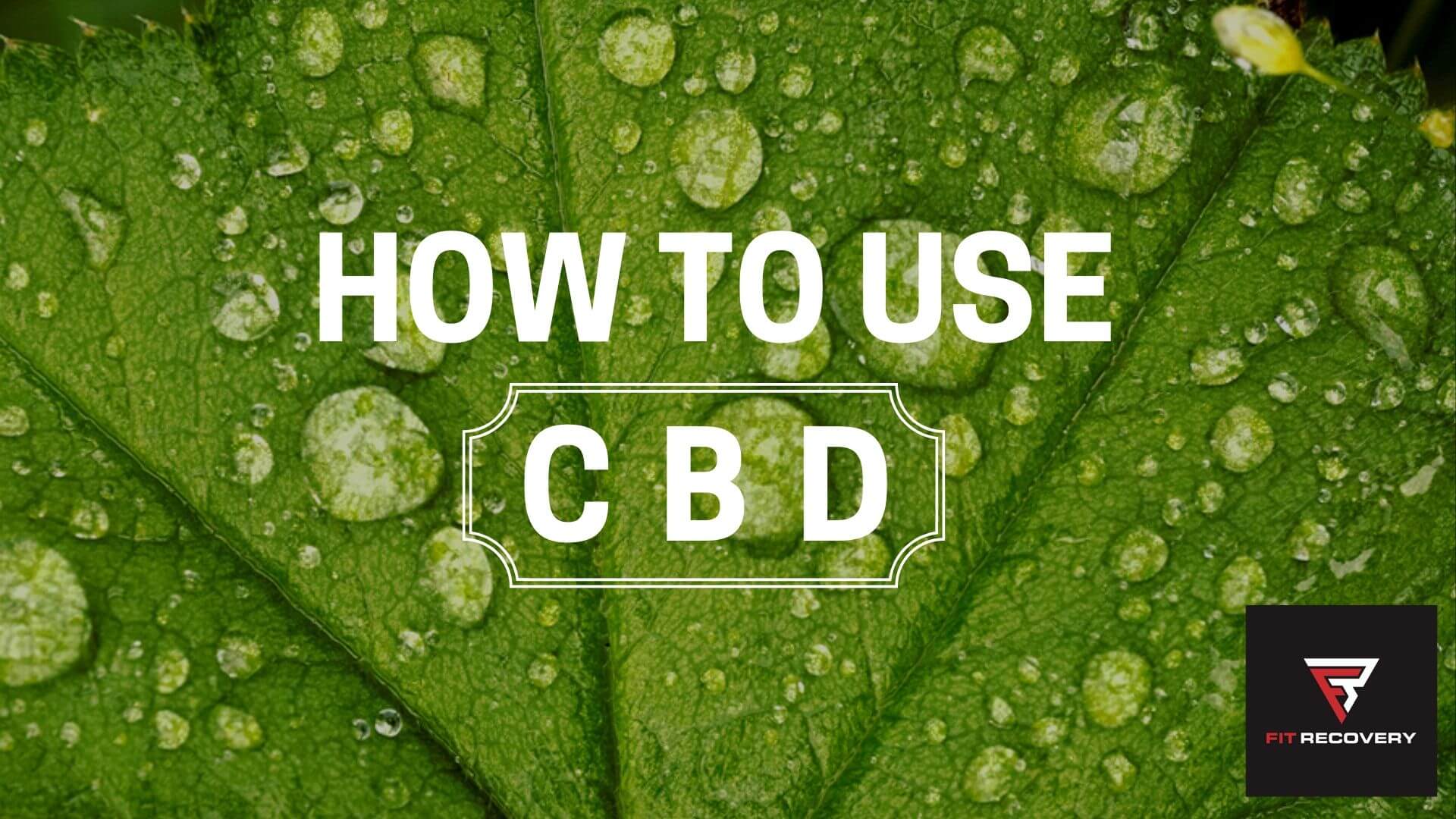
This article will primarily focus on the mechanisms by which non-THC, hemp-derived CBD oil may work to alleviate post-acute withdrawal and cravings.
First, we will give a brief overview of CBD. We will clarify the difference between the oil extracted from hemp and the use of marijuana for withdrawal. We will then discuss research that is relevant, as well as my favorite brand and further considerations for people who want to use CBD for alcoholism.
What Is It?
Now, you may be wondering: What on earth is CBD?
Cannabidiol is a natural compound found in both industrial hemp and marijuana. Our bodies contain endocannabinoids in numerous organs, including multiple brain regions. The endocannabinoid system is involved in maintaining bodily homeostasis, especially with regard to the following functions:
- Pain
- Pleasure
- Memory
- Appetite
- Immune system responses (e.g., inflammation)
Incidentally, exercise is known to powerfully stimulate the endocannabinoid system.
This supplementation is thought to improve numerous conditions by helping to restore balance to the body and brain.
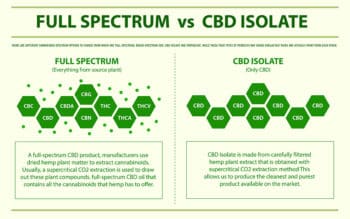
Unlike THC (tetrahydrocannabinol), another compound found in marijuana and some hemp strains, cannabidiol is not psychoactive and therefore does not give users a “high.” Instead, scientists have focused on cannabidiol for its plethora of health-promoting effects, which may be useful for a variety of conditions as well as general health optimization.
CBD vs Marijuana For Withdrawal
Why CBD Helps With Withdrawal
I recently discussed exciting new research in rats that showed the potential for a 1-week administration of cannabidiol oil to reduce cravings and subsequent relapse for up to 5 months. This particular study noted that it reduced biomarkers for inflammation, which disrupts neurotransmitter production, leading to uncontrollable cravings and relapse.
If you have been reading Fit Recovery for awhile, then you know that short-term alcohol consumption causes a cascade of artificial boosts in feel-good brain chemicals.
You also know that heavy drinking creates severe deficiencies in these neurotransmitters, which are required to feel like life is worth living. It does this in part by prompting the brain to rely on alcohol instead of producing optimal quantities of these brain chemicals on its own.
Long-term liquor consumption also causes deficiencies in nutrients required for optimal neurotransmitter production. To make a bad situation even worse, ethanol and its toxic byproducts (like acetaldehyde) lead to the production of pro-inflammatory compounds that directly inhibit the production of neurotransmitters like dopamine, GABA, and serotonin.
I believe that cannabidiol may ultimately prove to be very useful in eliminating dependence for two main reasons:
- Known to reduce the presence of pro-inflammatory compounds in the body and brain, removing a major roadblock for the production of feel-good brain chemicals. It may do this by repairing oxidative stress in a similar manner as antioxidants.
- Directly restores our natural endocannabinoids. Endocannabinoids (and even the number of endocannabinoid receptors) have been found to be severely depleted and even extinguished entirely by heavy drinking.
Why Marijuana Might Help With Withdrawal
There is a long history of people using marijuana, which contains varying levels of cannabidiol depending on the strain, to combat withdrawal. Some people have even successfully “switched” to marijuana from alcohol for long-term use.
Due to biochemical individuality, this form of harm reduction may work especially well for some people. I am sure that marijuana has saved lives from alcoholic destruction and liver disease.
I’m a fan of harm reduction – and I’m not opposed in principle to marijuana use.
However, there are a number of reasons that cannabidiol oil may be safer and more suitable for the vast majority of alcohol-dependent people wishing to repair their bodies and brains:
- THC, the main psychoactive compound in marijuana, alters neurotransmission more drastically
- Unlike THC, CBD is not psychoactive, leading at most to feelings of relaxation or sleepiness in high doses
- THC can cause mental discomfort and paranoia in people who are biochemically predisposed to anxiety
- Heavy, long-term THC exposure may affect focus, motivation, memory, learning, and mood stability
- Heavy marijuana smokers experience changes in brain function and reduced blood flow to the brain (source)
Marijuana is known to be less addictive than other psychoactive drugs. However, any substance that alters neurotransmission significantly can theoretically lead to physical and/or psychological dependence.
To the extent that marijuana may be physically addictive, the culprit appears to be THC, which is very similar in structure to a naturally occurring brain chemical called anandamide that “fits” into CB-1 receptors.
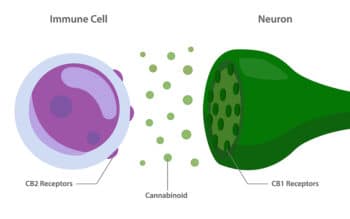
Interestingly, some research indicates that THC’s addictive potential may be counteracted by the presence of CBD. While it does not fully bind to CB-1 receptors, it has powerful indirect effects. Supplementation has even been found to alleviate THC withdrawal syndrome. (source)
Since marijuana strains contain varying proportions of these compounds, it can be difficult to determine how much THC or CBD one is consuming when consuming this plant. Generally, indica-dominant strains contain higher levels of cannabidiol, while sativa-dominant strains contain a relatively higher proportion of THC.
The bottom line is that marijuana users may be able to obtain the benefits of CBD. However, they are also consuming up to 112 cannabidiols identified in cannabis, with THC being the most prevalent. By using oil obtained from hemp, you can achieve therapeutic effects without getting high or even using marijuana.
Benefits For Alcoholism
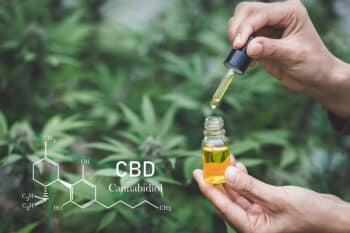
The use of cannabidiol for withdrawal is still a very new phenomenon. There are many promising anecdotal reports about the use of cannabidiol for withdrawal, but more studies are needed before we can say that it has proven benefits for people struggling with addiction.
As mentioned earlier, I believe that the two main benefits are inflammation reduction and endocannabinoid replenishment, both of which promote optimal neurotransmitter balance.
I also suspect that it exerts positive effects for people struggling with addiction in two specific ways:
- Reducing glutamate toxicity, which is relevant because withdrawal involves excess glutamate (a stress chemical) that contributes to insufficient GABA (the brain’s “natural Valium”)
- Reducing cravings through a combination of reducing inflammation, restoring endocannabinoid and CB-1 receptor function, and combating high glutamate levels
In many abstinence-only circles, the use of CBD is controversial. But there are signs that CBD is becoming more widely accepted. The media has begun to give a voice to people who have used CBD for a variety of health issues.
The Huffington Post told the story of a 15-year member of AA named April, who successfully used cannabidiol to treat recurring melanomas. April gathered a large array of research demonstrating the therapeutic benefits of cannabidiol for a wide variety of conditions. She brings up an important point: “If there was no factually based research proving the benefits of CBD, then why would the U.S. buy a patent on CBD?” (source)
Many users on Reddit have noted that their drinking decreased.

A growing number of people combine cannabidiol with kratom to reap the benefits of both after they quit drinking. I should note that cannabidiol works much differently than kratom. You can learn more about kratom in my article about how to use kratom for alcohol withdrawal.
Research On CBD For Addiction

Scientists have begun to explore the effects of cannabidiol on inflammation and addictive behaviors. Some of the results bear at least indirect relevance for people struggling with dependence:
- Alcohol-dependent people have a severely diminished prevalence of CB-1 receptors in the brain, even after prolonged periods of abstinence – and endocannabinoids can disappear altogether in severe cases of alcoholism. (source)
- Alcoholic rats given a non-THC version of CBD oil reduced their alcohol-seeking behaviors and prevented high impulsivity often seen with withdrawal. A 1-week administration of CBD oil produced these effects for 5 months, even though CBD itself left their systems after 3 days. (source)
- Reverses glutamate toxicity in the brain by binding to CB1 receptors and reducing oxidative stress (source)
- An analysis of scientific studies found that cannabidiol seems to have direct effects on addictive behaviors, possibly by replenishing endocannabinoids that may be missing from the body, as well as indirectly by improving stress vulnerability and reducing neurotoxicity. (source)
- Reduces cigarette consumption in tobacco smokers (source)
- Reduces the reward-facilitating effects of morphine (source)
- Reduces cravings for cannabis following heavy usage (source)
- No adverse effects have been reported with high doses (source)
More research – particularly in humans – is clearly needed. Its use for various addictive disorders is an exciting new research frontier from which I expect to see further advances in the near future.
Trusted Brands
I haven’t struggled with withdrawal or cravings in years, due to the supplements and lifestyle strategies discussed on this site and in my online course. My goal in trying hemp was to determine its overall impact on my sense of well-being and any negative side effects that I could discern.
I first ordered a few popular supplements from Amazon. After using them, I noticed that I became slightly more calm and slept a bit deeper than usual.
I then came across a company called CBDPure, which makes oil from organic hemp that contains zero THC. I did some research on this company and was generally impressed. CBDPure gave me 15% off with a coupon (given below), shipped to my condo for free, and had a 90-day unconditional refund policy.
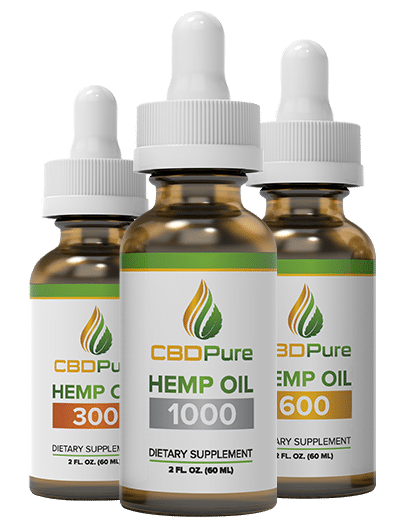
CBDPure offers three different versions of oil: 300mg, 600mg, and 1000mg. I’m very in tune with my body, meaning that I can usually notice some effect when I take a new supplement. I’m often overly cautious when dosing new supplements, but I knew that cannabidiol was harmless even in large amounts. Therefore, I opted to try the 1000mg version.
The first thing I noticed was that the oil from CBDPure tasted less grassy. It has a light golden color, similar to honey, and tastes earthy without the unpleasant grassiness that I noticed with the brands.
As for effects, CBDPure was more potent than the other brands I tried. I felt noticeably calmer within minutes after consuming just 1 dropper of their full-spectrum oil. In my opinion, full-spectrum is better than cannabidiol isolate, because it contains a wider range of natural compounds that work together to provide beneficial effects.
I sat down on my favorite chair and seemed to sink in deeper than usual. I read a few chapters of a book and then floated into bed. I can see how CBDPure offers massive relief for people struggling with discomfort after quitting drinking.
It’s important to note that while cannabidiol oil may help to take the edge off instantly for many people, its most beneficial potential effects – including inflammation reduction – take place over a period of days or weeks.
CBDPure uses organic hemp harvested in Denmark, which apparently has some of the highest quality standards for hemp production. The company then uses CO2 extraction to produce its cannabidiol oil here in the U.S. In contrast to more commonly used ethanol or butane, CO2 extraction is a nontoxic and precise method of isolating plant compounds.
If I were quitting drinking today, I would use 1-3 droppers of CBDPure 1000mg each night for a few weeks and then assess its effects on my overall sense of well-being and cravings. If I were on a tight budget, I’d simply start with the 300mg dropper bottle and order more if it helped!
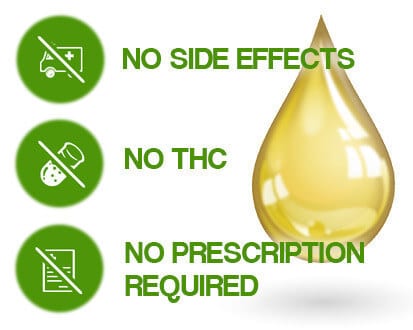
Generally, I recommend that my private clients try one of CBDPure’s stronger versions – just to ensure maximum results.
As with every other supplement, it should be discussed with your doctor before you start using it.
CBDPure – Price
- 300 mg Dropper – $29.99
- 600 mg Dropper – $54.99
- 1000 mg Dropper – $79.99
- 750 mg Softgels – $89.99
CBDPure – Benefits
- Superior taste
- Superior potency
- 100% Organic
- Third-Party Tested
- Free shipping
- Discrete shipping
- 90 day money back policy (used or unused)
- Ships to all 50 U.S. states
- If you order CBDPure today, you will get 15% off by using this coupon code: FITRECOVERY
Conclusion
I hope that you’ve enjoyed this article about cannabidiol oil and alcohol plus its use for helping with quitting. I will continue to be on the lookout for new research, as well as any other new supplements that hold promise for enhancing recovery.
My drinking days are long gone. I live an exciting lifestyle that revolves in large part around optimizing my body and brain. There is a definite learning curve here, and I know that trial and error with supplementation can be frustrating.
If you’ve recently quit drinking, frame early recovery as your own individual journey and enjoy the ride. In the meantime, make sure to optimize your own lifestyle by integrating some healthy lifestyle strategies into your daily routine:
- Begin a supplement regimen
- Work out daily
- Get better sleep
- Clean up your diet
- Take yoga classes
- Get a Swedish massage
If you have any questions, please leave them in the comment box below.

FAQ on CBD:
Is it safe for recovering addicts?
Cannabidiol is a safe supplement for people who describe themselves as recovering alcoholics. It is somewhat controversial due to its traditional association with marijuana. But since it is not psychoactive, it does not cause a “high.” Studies have found that it lowers anxiety and extends REM sleep, possibly by reducing brain inflammation.
Does it cancel out alcohol?
No known substance cancels out the negative effects of alcohol. But cannabidiol can be useful for people who want to drink less. It helps to combat cravings, lowers anxiety, and helps with sleep.
Is it a good alternative to drinks?
Cannabidiol is a healthy alternative to alcohol for “taking off the edge,” without toxic side effects like hangovers. There are now many CBD sparkling waters, infused kombuchas, and other similar products to sip instead of booze.
Does it help anxiety?
Many people have reported anecdotally that it helps with anxiety. Research has also begun to emerge that backs this claim. This effect may be related to the ability of cannabidiol to reduce levels of brain inflammation.
Can it become addictive?
Unlike THC, which can be physically addictive, cannabidiol is not addictive. It actually contains anti-addictive properties. Since both THC and CBD are traditionally found in marijuana, cannabidiol’s anti-addictive properties may explain why marijuana is not thought of as particularly addictive in comparison with “hard” drugs.
Authors
-
Chris Scott founded Fit Recovery in 2014 to help people from around the world dominate alcohol dependence and rebuild their lives from scratch. A former investment banker, he recovered from alcohol dependence using cutting-edge methods that integrate nutrition, physiology, and behavioral change. Today, Chris is an Alcohol Recovery Coach and the creator of an online course called Total Alcohol Recovery 2.0.
View all posts -
Dr. Rebeca Eriksen is the Nutritional Consultant for Fit Recovery. She has a PhD in Nutritional Genetics from Imperial College London, and over ten years of clinical experience designing custom nutritional repair regimens for patients recovering from alcohol addiction. In addition to her work at the exclusive Executive Health clinic in Marbella, Spain, she helps to keep Fit Recovery up to date with emerging research.
View all posts





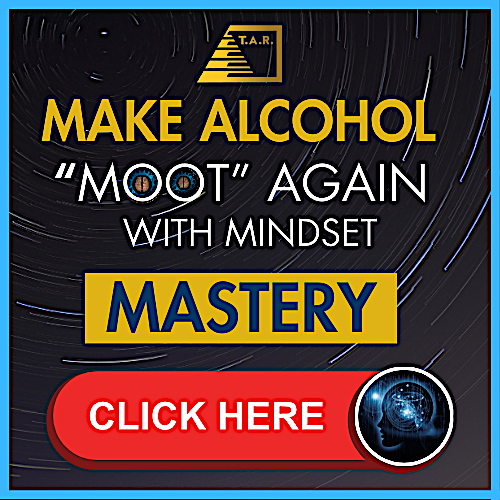
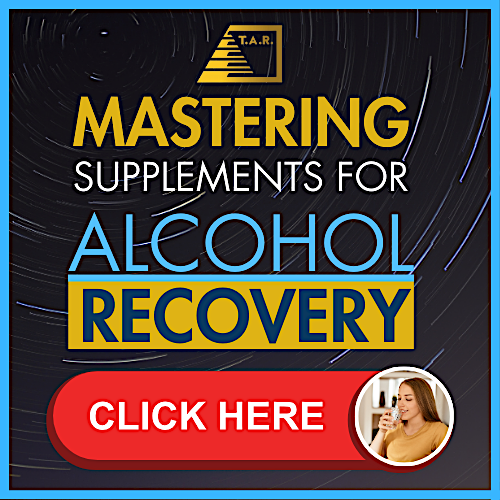
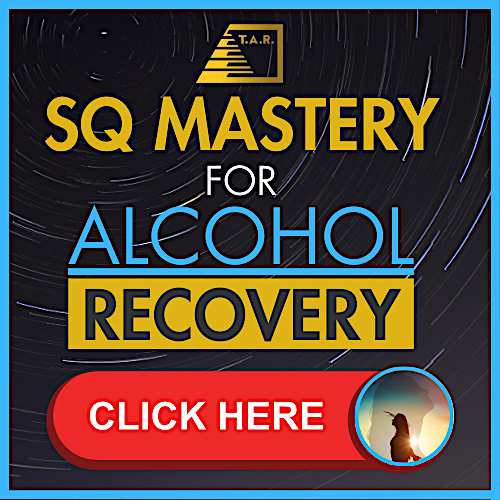


I have noticed a calming, less anxiety feeling 20 minutes after taking CBD. It also reduces the hand shakes.
Do you have a capsule instead of liquid? Also is it best to take at night if you’re cravings come in the morning?
Can CBS be used with anti depressants and anxiety medicines, and also blood pressure medication?
Thank you!
I appreciate the info here. I have been hospitalized for alcohol withdrawal and have had seizures. My insurance doctor recommends Keppra; but I did not like how I felt. CBD has proven helpful. My naturopath is helpful. Fit Recovery is helpful. I am recovering; but the recovery support community is disappointing. I am in the Los Angeles and Pasadena area where I suspect that high percentage of my friends and neighbors have addictive problems. One group, Seniors for Sobriety has an average weekly turnout of about 30-40; while another group Celebrate Recovery which meets at a nice conveniently located church… Read more »
Hi Nancy! I’m glad you’re on the road to recovery. I think perhaps you had a call with Matt? Not sure what happened, but apologies for any misunderstandings – free to email me and we’ll get it set up again!
So I just visited the CBD Pure website and chatted with one of their agents. She is recommending that I start with 300MG Oil twice a day…once in the morning and again at night.
Can someone that has experience with CBD Oil let me know if you agree with this recommendation or not? I thought this was used by many people to help them sleep, so if that’s the case, why would I want to take it in the morning?
Any feedback here would be greatly appreciated!
Hi Travis, CBD is useful for a ton of different things, because it reduces inflammation throughout the body. It’s also been shown in studies to help with sleep and alcohol cravings. My private clients often take it for sleep at first, but then end up taking it during the day to reduce stress and support well-being. If I were you, I’d start by taking it before bed and then experiment with it during the day.
Great, thanks for taking the time to get back to me on this! It also sounds like (from your previous posts) that you would recommend starting with the 100mg over the 300mg, is that correct? And if that is the case, how would one know when/if you are ready to progress to the 300mg or higher? TIA for your time here!